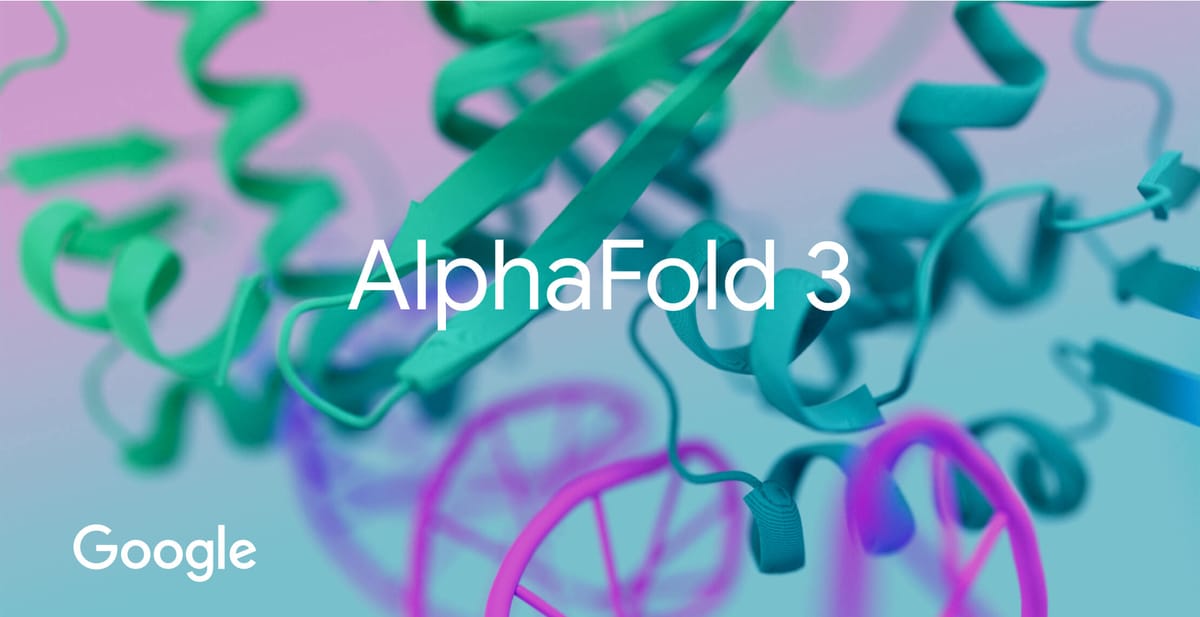
Google DeepMind's AlphaFold AI has been a game-changer in the field of protein structure prediction, simplifying the complex task of forecasting 3D protein shapes. Now, with the unveiling of AlphaFold 3, the technology takes a giant leap forward, expanding its capabilities to predict how proteins interact with a diverse range of molecules, including DNA, RNA, and small molecules. This breakthrough promises to accelerate drug discovery and open new frontiers in biology.
AlphaFold 3, developed in collaboration with Isomorphic Labs, represents a significant upgrade to its predecessor, AlphaFold 2, which lacked the ability to predict situations where proteins bind to other molecules. This new version addresses that limitation by modelling how proteins interact with a broader range of molecular partners. This includes DNA, RNA, small molecules (ligands), and even chemical modifications that play a crucial role in cellular function and disease development.
AlphaFold 3 uses a next-generation architecture and training process that covers all of life's molecules. At its core is an improved Evoformer module, a deep learning architecture that processes inputs and assembles predictions using a diffusion network. This holistic approach allows AlphaFold 3 to compute entire molecular complexes and produce highly accurate structures.
One of the most exciting aspects of AlphaFold 3 is its potential to accelerate drug discovery. The model can predict interactions between proteins and small molecules known as ligands, as well as antibodies and their target proteins, with unparalleled precision. Isomorphic Labs is already harnessing these capabilities to reimagine drug design, collaborating with pharmaceutical partners to develop innovative treatments.
Unlike AlphaFold2, Google DeepMind is not opensourcing AlphaFold3, so researchers will not be able to run their own version, nor access the underlying code or training data. Instead, Google has launched AlphaFold Server, a free, user-friendly platform for non-commercial research. Scientists around the world can now harness the power of AlphaFold 3 to model structures composed of proteins, DNA, RNA, and various ligands, ions, and chemical modifications. This accessibility empowers researchers to test hypotheses and accelerate discoveries, regardless of their expertise in machine learning or access to computational resources.
However, it is essential to recognize that AI technologies like AlphaFold 3 come with inherent risks and potential for misuse. As a responsible company, Google DeepMind has taken steps to mitigate these risks by engaging with domain experts and participating in community-wide discussions to understand the capabilities and potential dangers of successive AlphaFold models. The company continues to work closely with the scientific community and policymakers to develop and deploy AI technologies ethically and responsibly.
While some may view the limitations on commercial use as a drawback, it is crucial to acknowledge that Google DeepMind is, after all, a business entity. The company has invested significant resources in developing AlphaFold 3, and it is understandable that they seek to protect their intellectual property and maintain a competitive edge in the market.
By striking a balance between providing access to the scientific community for non-commercial research and safeguarding their commercial interests, Google DeepMind demonstrates a commitment to both advancing scientific discovery and ensuring the long-term sustainability of their AI research.

